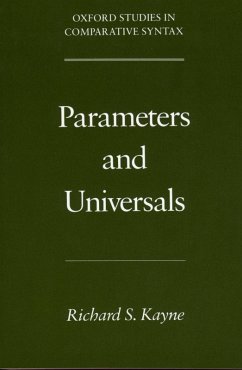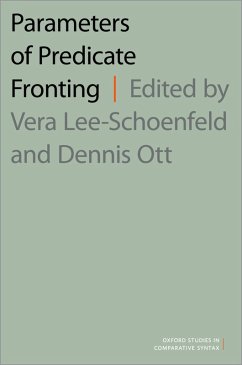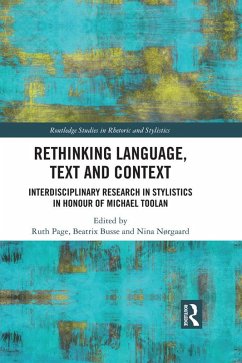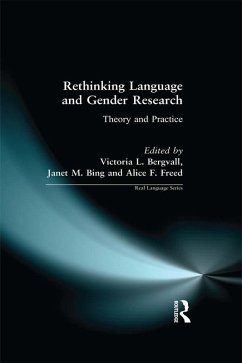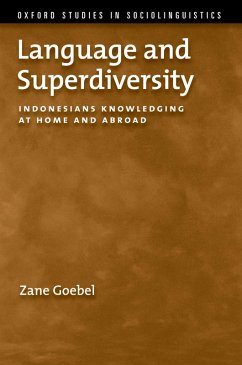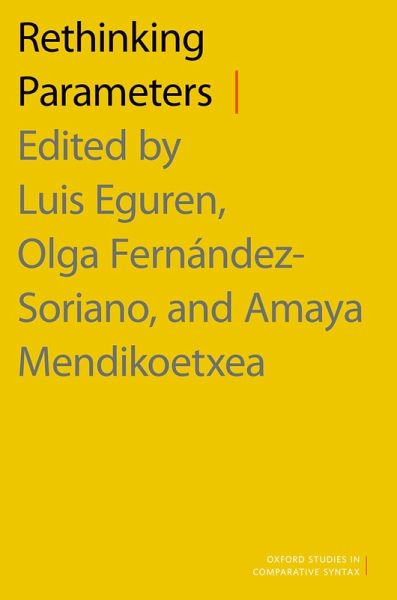
Rethinking Parameters (eBook, PDF)

PAYBACK Punkte
10 °P sammeln!
Parameters of linguistic variation were originally conceived, within the chomskyan Principles and Parameters Theory, as UG-determined options that were associated with grammatical principles and had a rich deductive structure. This characterization of parametric differences among languages has changed significantly over the years, especially so with the advent of Minimalism. This book collects a representative sample of current generative research on the status, origin and size of parameters. Often taking diverging views, the papers in the volume address some or all of the main debated topics ...
Parameters of linguistic variation were originally conceived, within the chomskyan Principles and Parameters Theory, as UG-determined options that were associated with grammatical principles and had a rich deductive structure. This characterization of parametric differences among languages has changed significantly over the years, especially so with the advent of Minimalism. This book collects a representative sample of current generative research on the status, origin and size of parameters. Often taking diverging views, the papers in the volume address some or all of the main debated topics in parametric syntax: i.e. are parameters provided by UG, or do they constitute emergent properties arising from points of underspecification?; in which component(s) of the language faculty are parameters to be found?; do clustering effects actually hold across languages?; do macroparameters exist alongside microparameters?; are there parameter hierarchies?; which is the origin and role of parameters in the process of language acquisition? The volume is organized into two parts. Part I ("The nature of variation and parameters") brings together studies whose main goal is to discuss general issues related to parameters (or variation more generally). Part II ("Parameters in the analysis of language variation: case studies") includes a number of works that deal with the empirical basis and proper formulation of well-known particular parameters: the Null Subject Parameter, the NP/DP Parameter, the Compounding Parameter, the Wh-Parameter and the Analyticity Parameter.
Dieser Download kann aus rechtlichen Gründen nur mit Rechnungsadresse in A, B, BG, CY, CZ, D, DK, EW, E, FIN, F, GR, HR, H, IRL, I, LT, L, LR, M, NL, PL, P, R, S, SLO, SK ausgeliefert werden.





